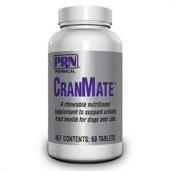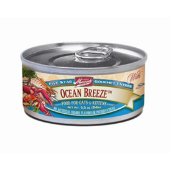The urinary tract consists of the kidneys,
the bladder, the urethra, which is the tube that drains the bladder
to the outside world, and the ureters that connect the kidneys to the
bladder. Unfortunately, urinary tract disease is an all too common
problem for both cats and their owners.
"If your cat is trying to urinate but either cannot or
can only get a small amount of urine out, take him to the veterinarian
immediately."
Typical Symptoms of Urinary Tract Disease in Cats
The ureters, bladder and urethra are
collectively referred to as the lower urinary tract. Cats that
suffer from lower urinary tract disease may:
- Urinate outside the litter box
- Strain to urinate or become
unable to urinate at all (particularly neutered males)
- Urinate small amounts more
frequently than normal
- Have blood in their urine
Disease that only affects the lower
urinary tract usually does not produce more generalized symptoms like
loss of appetite, lethargy, a fever, etc.

The most common symptoms of kidney
disease and failure are increased thirst and urination.
Causes of Feline Lower Urinary Tract Disease
Following is a brief description of
diseases that commonly affect the lower urinary tract of cats.
They can all produce very similar clinical signs so a trip to the veterinarian
is necessary to reach an accurate diagnosis and plan appropriate treatment.
Urinary Tract Infection
(UTI): an infection of the bladder and/or urethra is not very common in cats under
10 years of age, but the incidence does increase after this point.
A urinalysis and urine culture is usually necessary to diagnose an infection
and to determine what antibiotic should be used to treat it.
Bladder Stones
(uroliths):
an abdominal x-ray and/or ultrasound usually reveals the presence of
stones or grit in the bladder or urethra. Your veterinarian may
be able identify crystals in the urine under the microscope, which will
help determine what the stone is composed of. Some types of stones
can be dissolved with pet medications like or special diets but others need to be surgically
removed.
Feline Idiopathic Cystitis

Feline Idiopathic
Cystitis goes by many names, including feline lower urinary tract disease
(FLUTD) and feline urologic syndrome (FUS). The cause of this
disease is not known, but for some reason, the bladder and/or urethra
becomes inflamed causing the typical symptoms of lower urinary tract
disease. The inflammation tends to resolve over a week or so no
matter what treatment is instituted, but the symptoms can return just
as mysteriously. To try to prevent these flare-ups your veterinarian
may recommend canned food to increase the amount of water your cat
consumes and dietary
supplements.
Obstruction
If infection,
inflammation and crystal/stone formation become bad enough, the flow
of urine through the urethra can be completely blocked. This potentially
life threatening condition is seen most often in neutered male cats.
If your cat is in pain and is trying to urinate but either cannot or
can only get a small amount of urine out, take him to the veterinarian
immediately. He will probably need fluid therapy, procedures to
drain urine and unblock his urethra, close monitoring, and diagnosis
and treatment for the underlying cause of his urinary obstruction.
Kidney Failure
Kidney or renal failure can be divided
into two big categories. Acute kidney failure develops rapidly
as a result of infection, toxin ingestion (e.g., antifreeze), etc.,
and cats can recover with fluid therapy, dialysis and other treatments
if the damage to their kidneys is not too severe.
Chronic kidney
failure is caused by the more gradual loss of kidney function. It cannot
be reversed but can often be managed for a period of time with fluid
therapy, prescription diets, and pet medications. A kidney transplant
may also be an option in some cases.
The above is provided for information purposes only and should not be used for the diagnosis or treatment of any condition.
This information does not cover all possible variables, conditions, reactions, or risks relating to any topic, medication, or product and should not
be considered complete. Certain products or medications may have risks and you should always consult your local veterinarian concerning the treatment of
your pet. Any trademarks are the property of their respective owners.